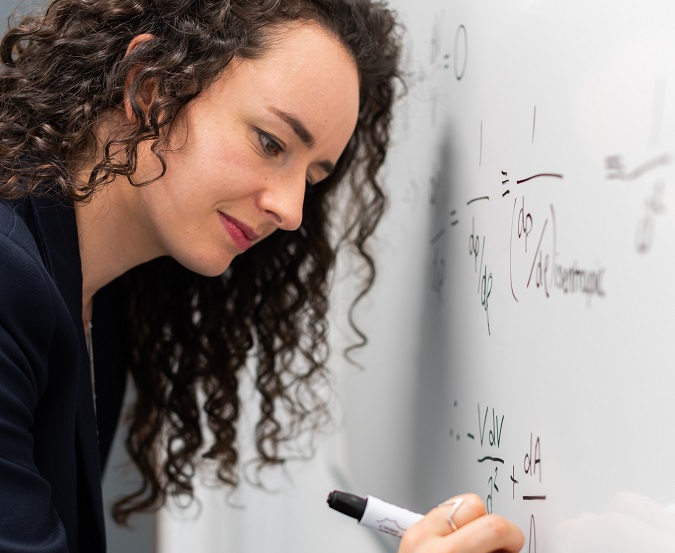
While there may be pressure on teachers to make up for lost time, they should focus on rebuilding classroom relationships, avoid rushing through content missed during lockdown, and preference a deep understanding of a few topics over a superficial understanding of many, say maths education researchers in an upcoming paper.Education leadership and wider school communities need to trust teachers’ professional judgement and support them in this, the researchers say. There is also an opportunity for greater partnership between parents and teachers, especially where parents have become more hands-on in their children’s education. The paper, led by Professor Peter Sullivan of Monash University and Professor Janette Bobis of the University of Sydney, has been accepted for publication in the Mathematics Education Research Journal. While remote learning has its strengths, and parents and teachers have done a great job in the circumstances, students are likely to have lost opportunities to deeply engage with maths concepts, the authors say. This places new pressures on teachers. Students may have fallen behind, creating a temptation to cover a lot of ground quickly and focus on easy rules students can learn and follow. But this would be a grave mistake, the researchers say.
“When face-to face schooling resumes, there is a very real risk that teachers might seek to cover content quickly and do this by offering longer and faster explanations,” the researchers warn. “This is unlikely to be productive and might even have negative effects on long term learning. “We might expect perceived pressures to ‘cover all the content’ to be exacerbated when schools return. However, speeding up will not help.” “Approaches that emphasise understanding are likely to be better for learning than rules based approaches. It is preferable to engage students in thinking deeply about fewer topics over the rest of this year rather than superficially about many topics.” During remote learning, students may have had plenty of routine exercises, but little in the way of solving harder problems for themselves. It is essential, the researchers say, that teachers continue to challenge students to think deeply about problems and understand what they are doing, while providing support to avoid frustration. While some students may have struggled to learn at home, fallen behind, and become unengaged, others may have “become used to easy successes; tasks that require extended thinking might seem confrontational,” the authors say. “Teachers perhaps could lead discussions specifically intended to create awareness among students including how school and home learning are different.” Students will also need to reconnect with their teachers, peers, and school community. “It is possible that students missed their friends more than they did teachers,” say the authors, “and there will be a need to induct students again into the routines and expectations of classrooms.
Parents will also play an important role. “It seems that many parents have taken their roles as home tutors seriously,” note the authors. “Where parents spent time engaging with the ideas, listening to their children, encouraging effort, this time will have been productive.” “Parent engagement is associated with high levels of aspiration for children’s learning as well as learning outcomes. Finding ways to broaden the nature of home learning experiences will be an important challenge for some time.” “We believe our advice is likely to align with most teachers’ professional judgements, and we want to reassure them that this is the right approach,” said Professor Sullivan. Source: Peter Sullivan, Janette Bobis et al. (2020). ‘Threats and Opportunities in Remote Learning of Mathematics: Implication for the Return to the Classroom’, Mathematics Education Research Journal. (in press) |
The much-delayed English draft curriculum is now out for consultation, generating discussion from teachers.
Research from AUT demonstrates arts, culture and recreation have positive impacts on all aspects of…
How effective has the school phone ban been in achieving its aims? Researchers from the…
School camps and excursions deliver hands on learning experiences, helping to consolidate classroom learning.
Innovations in AV technologies present new opportunities to engage with students. We look at how…
A new report from the University of Auckland’s Our Voices Project asks young people what…
This website uses cookies.